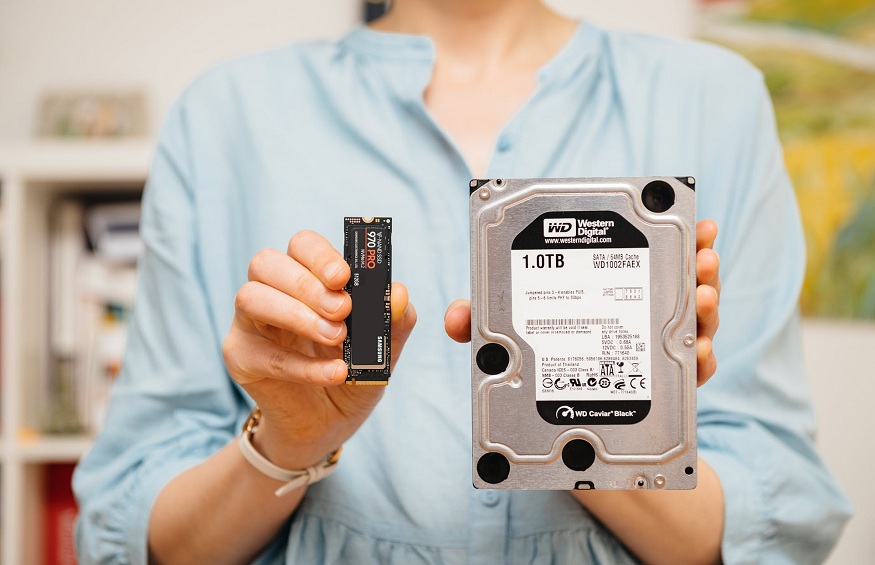
SSD vs. HDD, a clash of two different storage devices.
Which drive is better suited to your needs? What are the differences between them? More on the motivations today, along with a discussion of their strengths and weaknesses as well as your best option to buy a storage device from Atlantek Online Shop, where you will find a variety of these devices in amazing prices!
It seems that by 2022 the situation in the storage market is clear: total SSD dominance, total HDD decline. Is this really the case? Although the downward trend in the popularity of the latter is clearly visible, rum ours of their supposed demise are still exaggerated. In the first quarter of 2021, a total of over 64 million HDD drives were manufactured. Yes, this is a significant drop from previous years – in 2011, in the same quarter, worldwide production was over 160 million units. But as you can see, HDDs are still doing well – so here’s our advice on which drive is best for which applications.
SSD vs. HDD – overview of the two types
Choosing a drive shouldn’t just be about capacity and price. While both are important, the most important thing to consider is the performance of the model in question. This is a very broad aspect that includes read and write speeds, power requirements and endurance. SSDs and HDDs are currently the main options to consider (although I will also discuss SSHD hybrids in the next article ). Let’s first answer the question about what characterises and differentiates them.
SSDs
SSDs (solid-state drives) are devices that store all your data on integrated circuits inside. The recording principle is similar to that of flash memory. Therefore, there is no place for mechanical circuitry (as in the case of the HDD), so the access time to the stored information is much shorter – the drive doesn’t need time to accelerate. This is the feature our Atlantek Online Shop customers love the most, as instant access to information is a priority nowadays!
They are also generally much smaller than hard disks. They don’t rely on the crossbar action for their operation, so they can be more miniaturised – like M.2 drives, which can resemble a small candy bar in size. However, SSDs are more expensive (compared to the price of each gigabyte/terabyte) and although this trend is changing, HDDs still reign supreme from a cost perspective.
HDDs
An older type of data storage, still present in many desktop computers and even laptops. Its working principle is based on the mechanical working of the platter and head. Writing and reading of data occurs on a magnetic basis – on a rotating platter moves the head, which is equipped with transducers – its work allows these two operations. The arm itself moves across the surface of the platter to access the stored information – similar to the way a turntable works when playing music from a record.
HDDs are an older technology than SSDs (although they are still in use). Due to the platter, they are larger than the opponent in question. They are currently sold in two versions: 2.5-inch and 3.5-inch – the former are intended for laptops, while 3.5-inch ones are used in desktop computers.
If you want to learn more about these technologies, Stay Tuned for the next article!



